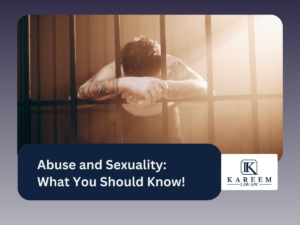Probation violation and its epitomes
When individuals are granted probation, it is essential to understand the terms and conditions imposed by the court. Violating probation can lead to serious consequences, including revocation of probation and potential jail time. In this blog post, we will explore the various types of probation violations, shed light on how they can affect your legal rights, and provide guidance on safeguarding your rights. People don’t need to violate probation knowingly, not understanding probation rules properly might lead to violating the rules unknowingly. If we talk in broad terms probation violations can be categorized as technical and substantive probation violations.
Technical Probation Violations:
Technical violations occur when an individual fails to comply with the specific conditions outlined in their probation terms. Common technical violations include:
- Failure to report to a probation officer as scheduled
- Failing drug tests or testing positive for prohibited substances
- Failure to attend court-ordered counseling or treatment programs
- Not paying fines or restitution as ordered by the court
- Leaving the jurisdiction without permission
It is crucial to take these violations seriously, as they can result in probation revocation and potentially severe consequences.
Substantive Probation Violations:
Substantive violations involve committing a new offense while on probation. These violations are considered more severe and can have severe implications for your legal rights. Some examples of substantive probation violations include:
- Arrest or conviction for a new crime
- Possession or use of illegal drugs or firearms
- Engaging in violent behavior or harassment
- Violating restraining orders or protective orders
If you find yourself facing allegations of substantive violations, it is crucial to seek legal representation promptly to protect your rights.
Safeguarding Your Legal Rights
If you are charged with a probation violation, you will need to be prepared to defend yourself. This means being able to explain why you violated your probation and why you should not be punished. If you are accused of violating probation, it is important to take immediate action to safeguard your legal rights. Here are some steps to follow:
- Consult with a Skilled Probation Violation Attorney: Consult with an experienced probation violation attorney who can review your case, understand the circumstances, and provide you with the best legal advice.
- Gather Evidence and Witnesses: Work closely with your attorney to collect evidence and identify witnesses who can support your defense. This may include providing proof of compliance with probation terms or challenging the allegations against you.
- Develop a Strong Defense Strategy: Your attorney will develop a robust defense strategy tailored to your case, ensuring that your rights are protected and that you receive fair treatment during the legal proceedings.
- Negotiation and Mitigation: Your attorney may negotiate with the prosecution to minimize the potential consequences of the probation violation. This could involve seeking alternative sentencing options or advocating for treatment programs instead of incarceration.
- Court Representation: If your case proceeds to court, your attorney will represent you, presenting your defense and challenging the evidence against you. They will ensure that your constitutional rights are upheld throughout the entire process.
Conclusion
Probation violations can have severe consequences, jeopardizing your freedom and legal rights. If you find yourself facing allegations of probation violations, it is crucial to consult with a skilled probation violation attorney. At Kareem Law APC, we are dedicated to protecting your health and legal rights in the aftermath of food poisoning incidents. If you or someone you care about has suffered from food poisoning, get in touch with us right away at (888) 506-6519. Let us be your dependable legal ally, dedicated to safeguarding your rights, probing the source of your illness, and obtaining the compensation necessary for your recovery.









